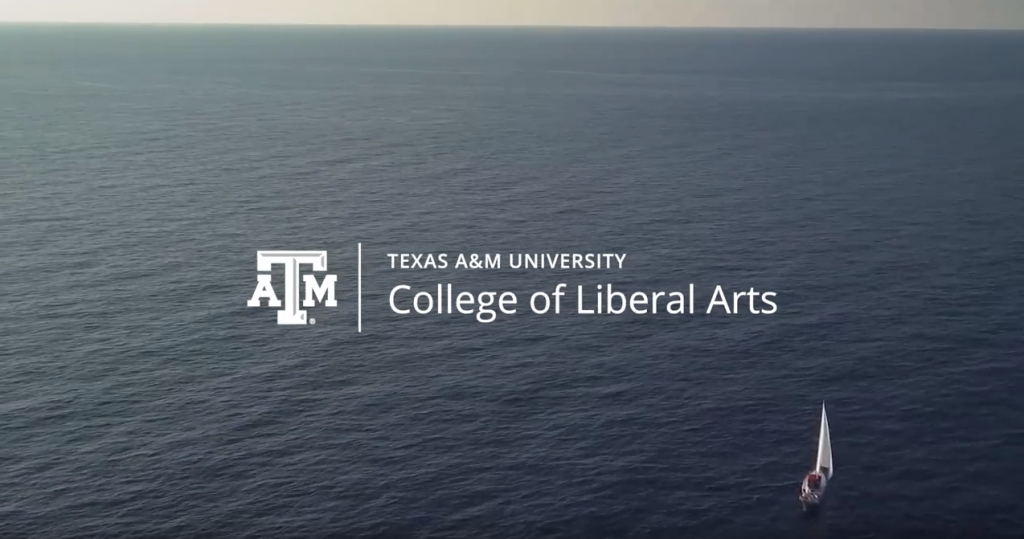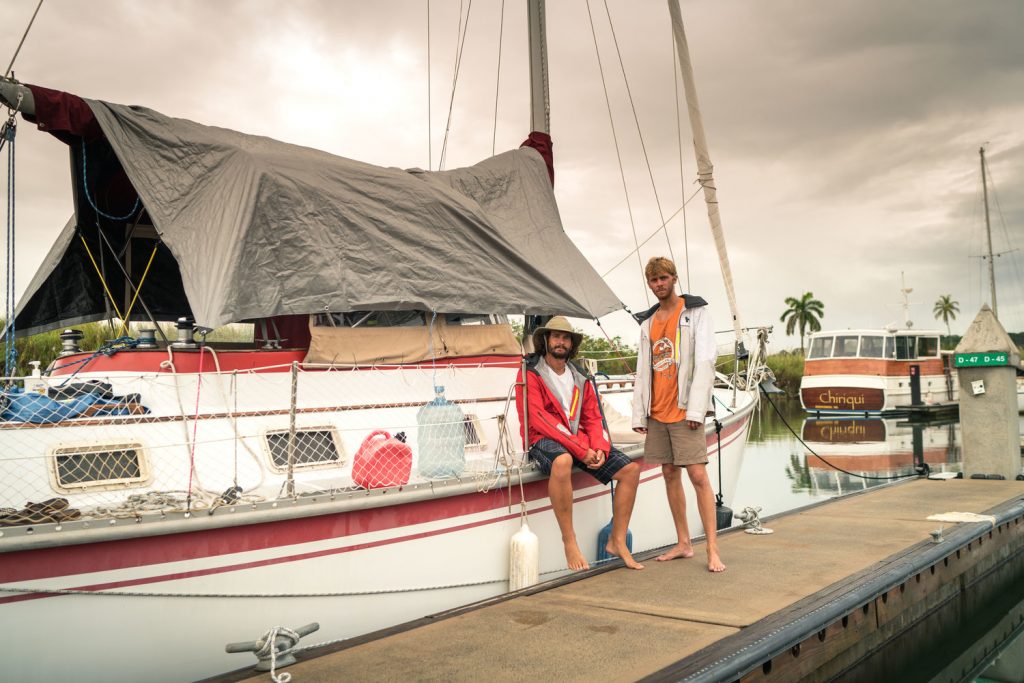We Are Liberal Arts: A port in the storm
Originally posted on Veteran's Day, we re-share the story of Stephen O'Shea with this completed video describing his journey sailing around the world to raise awareness of veteran suicides.

by Heather Rodriguez ’04
For many veterans, navigating civilian life after serving active duty is treacherous. They swim in an ocean of painful memories that cause over 20 of them to take their own lives each day. Former College of Liberal Arts student Stephen O’Shea ’13 is working to give them a port in the storm with his documentary, Hell or High Seas, in which he and his friend and veteran naval rescue swimmer Taylor Grieger sail around the tip of South America to raise awareness of veteran suicides.
“We’ve been filming the trip from the start and have some short videos on YouTube and Periscope,” O’Shea said. “But we’ve recently been picked up by FreshFly Films who are going to use our interviews and footage and create a documentary using our trip as the backdrop. However, the main story is about non-combat veteran suicide rates.”
As an English major in 2012, O’Shea participated in the Glasscock Undergraduate Summer Scholars Program—an immersive research experience where he and his fellow researchers worked with English professor Marian Eide with her book After Combat: True War Stories from Iraq and Afghanistan (which just received a great review by the New York Times).
“In this process, we interviewed combat veterans from the Iraq and Afghanistan wars. It wasn’t something I’d really ever thought of before, but I was interested in researching it,” O’Shea said. “It grew into something much bigger than I could have imagined and I realized I had been completely ignorant to what our soldiers have gone through.”
O’Shea said this project set the course for his life’s work. After graduating summa cum laude from Texas A&M, he received his Ph.D. in creative writing from the University of Strathclyde in Glasgow, Scotland. He became involved in local veteran organizations while working on his short story book From the Land of the Genesis. It was also during this time that, while on a research trip to the U.S. Navy base in Guam, O’Shea reconnected with his high school friend, Grieger.
“His story was really interesting to me, because he was a Navy rescue swimmer so he never experienced combat per se,” O’Shea said. “But he’d had some horrible, traumatic experiences that caused him to have PTSD, and he was able to share this with me because he knew I was writing this book to help people like him bridge the gap between civilian and veteran life.”
Grieger was getting out of the Navy around the same time O’Shea was done with graduate school, so he asked O’Shea to accompany him on a long trip—a sail around Cape Horn, the tip of South America. O’Shea agreed, but the two decided to make the trip even more impactful. Inspired by Greiger’s battle with PTSD and Mission 22, they decided to document their trip and tie it to veteran suicide awareness. So, they bought a 36-foot boat, formed Skeleton Crew Sailing, and set sail from Pemsacola, Florida in September 2017. It was a perilous journey from the start.
“That first leg across the Gulf, from Pensacola to Cancun, was terrifying. We hit a bunch of storms, and we had a few moments where it could have easily been the end for us,” O’Shea said.
From Cancun, they continued to Belize and then to Roatán, Honduras. And things got worse.
“We got hit by a tropical storm, and our engine seized up,” O’Shea said. “We found ourselves in a situation where if we wanted to fix our engine we would have to either go all the way back to Belize, or push on to Panama, which is what we did. But in the middle of the Caribbean we were hit with doldrums weather, and had no wind for about a week. By the time we pulled into Panama we were almost completely out of food and water.”
And they were totally out of contact with their families.
“After the engine froze there was no way for us to charge anything. We didn’t have a radio; we didn’t have our Garmin,” O’Shea said. “We had one bar left on the satellite phone battery that we were saving for a dire emergency and we got pretty close to using it towards the end.”
Instead of giving up in Panama, however, the two fixed their engine and pressed on through the Panama Canal. Finally, in May 2018, Grieger and O’Shea landed in Chile—nine months after leaving the U.S.
“The goal was to round Cape Horn before their winter started, which is our summer. But we had to break the trip in half and come home before the winter hit,” O’Shea said. “Right now, our boat is at the doorstep of Patagonia.”
Although the trip is only halfway over, and despite all the danger they faced, O’Shea believes the trip has done a world of good for his friend.
“In the Navy, he was essentially jumping out of helicopters for a living and living off of caffeine. Then when he came back to civilian life, he didn’t know how to cope with how slow it was, mentally and physically,” O’Shea said. “Sailing has a good variety of both. There are moments when you’re fighting for your life, but there are also really calm moments when you’re in these beautiful parts of the world and life is great.”
Next month, O’Shea and Greiger will join their boat and return to sleeping in shifts, eating peanut butter out of a jar, and enjoying the scenery. They expect the rest of their journey around Cape Horn and back to Miami to take another nine months, and after that, they will focus on completing their documentary.
“The film suggests there’s a very simple solution, which is making a comprehensive program that helps military personnel transition into civilian life,” O’Shea said. “I hope to tour it around the country and show it on military bases, and influence some kind of change.”

